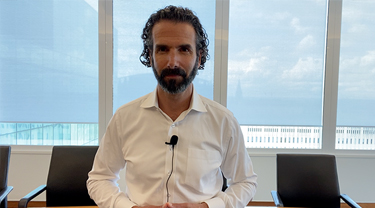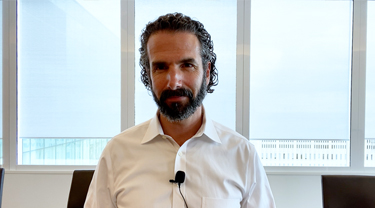When it began in 1957, founder Ludmilla Chiriaeff already had a clear vision—to establish the Grands Ballets company in addition to a school that would tend to the training element. The integration of these two spheres illustrates that Ms. Chiriaeff had the drive not only to develop a market for ballet, but also to help cultivate the next generation of dancers.
Les Grands Ballets Canadiens de Montréal has been innovative in terms of the artistic creativity of its shows and its business model, making it an internationally acclaimed cultural business.
Les Grands Ballets quickly found success and developed a reputation. Shortly after it was established, it garnered a broadcasting contract with the public television station Radio-Canada and embarked on its first international tour in 1958, visiting the United States. Les Grands Ballets is currently celebrating its 60th anniversary. Its reputation is now well-established internationally, with an average of two international tours per year taking the company all over the world.
Its largest markets are currently Europe and North America, with emerging markets in Central and South America, as well as some Arab countries. Les Grands Ballets was invited to perform in Cairo in 2008, which led to an invitation to Oman as part of the first season of the Royal Opera House Muscat in 2012.
“Culture is one of the best tools for business development on the international stage,” says Alain Dancyger, Executive Director of Les Grands Ballets since 1996. Reciprocal agreements have been signed with many countries, including, most recently, China. These agreements have been very beneficial, as Les Grands Ballets de Montréal are now an integral part of the development of political and trade relationships between Canada and China.
Similarly, the company has developed expertise in the organization of large-scale “turnkey” events in the various countries where it performs. It invites political figures and business leaders, and the events are great networking opportunities, reaffirming the reputations of Les Grands Ballets and its foreign partners. It’s a holistic approach that touches on the cultural, economic and political spheres in order to increase business opportunities and underline the impact left by Les Grands Ballets in the various countries where it performs.
In 1997, Les Grands Ballets adopted a very innovative business model by deciding to take on the role of promoter as well as producer. At the time, the company wanted not only to be able to promote shows from abroad as well as its own shows, but also to specialize in contemporary ballet while continuing to offer its audience classical programming by inviting the best ballets in the world.
In addition to strengthening its reputation and partnerships on international markets, this approach was also very positive in terms of marketing. From a strategic point of view, it helped consolidate the company’s position in the ballet market in Montréal. Les Grands Ballets is now a reference and a veritable gateway for international ballets looking to perform in Montréal.
Stepping into the international spotlight by exporting cultural products
Alain Dancyger, Executive Director of Les Grands Ballets Canadiens de Montréal, tells us a little bit more about the factors that helped the company succeed in its gamble to export Canadian ballet and make an international name for itself.
How does the fact that you export cultural products affect your business model?
There is no difference. Les Grands Ballets operates like businesses do in all other types of markets. It must be able to offer a product that meets demand and have an attractive brand image in order to establish partnerships with promoters all over the world. That’s where the importance of developing a creative and unique product comes in. That, however, entails a certain amount of risk, which requires investments to be made without necessarily having a guarantee on the final product. This method of production is somewhat comparable to a research and development department in a standard business. It has to be a veritable creative crucible.
However, in the cultural sector, the integration of particular markets can rely on factors that are out of our control, e.g., the political climate at a certain moment in history, and the existence of stable hosting structures that make it possible for us to establish agreements with partners. In short, a certain amount of market maturity is a prerequisite.
For example, Les Grands Ballets have never performed in Russia, a country that has a rich ballet tradition and where we would like to present one of our shows in the near future. Culture is always related to politics!
Do you have to tailor your products to fit your target markets?
In markets that are considered more conservative in terms of classical music and dance, like the Arab world and China, for example, classical productions are more appropriate. Hence the importance of adopting a marketing mix approach to adapt to different markets.
Having a company where the staff is international both in terms of their countries of origin and the ways they think is also very useful in this regard.
What is the most important quality for an exporting business to have?
Resilience is the most important quality for cultural businesses. The ability to work with few resources in a very complex environment, both to create new cultural products and to present them around the word. We are far from an automobile assembly line, where you know exactly what the product will be at the end of the line.
A creative product, by definition, always has to be made from scratch, which encourages the incorporation of flexibility and risk into the business model as positive values. We look to avoid stasis. Evolution is perceived as being natural and organic, whereas other large organizations tend to do just the opposite—they settle into rigid processes and ways of thinking.
What do you know about exporting today that you would have liked to know when you started out?
One thing I’m more sensitive to today, and which has become more important in my work, is the importance of cultural differences and properly understanding them and their impact on the way our organization does things. Some of our practices are not necessarily part of the work practices used elsewhere.
It is also important to have a good understanding of your market and your added value, and to anticipate as much as possible, because markets are evolving faster and faster.
One of the key factors in the company’s success is strategic partnerships. Very few things can be accomplished alone in our world. Hence the importance of finding successful strategic partnerships and building lasting relationships upon them when getting started in exportation.
What is the biggest difference between selling in Canada and selling abroad?
Sometimes we have more difficulty selling our shows in Canada than we do abroad, specifically for structural reasons—there are very few promoters in Canada—which is an undeniable constraint. And, no one is a prophet in their own land—some promoters think it is more prestigious to present shows that come from abroad than Canadian shows.





